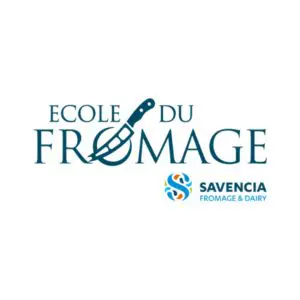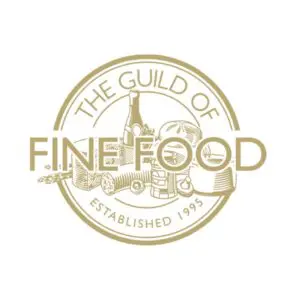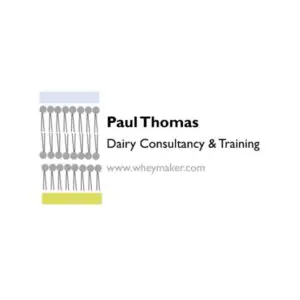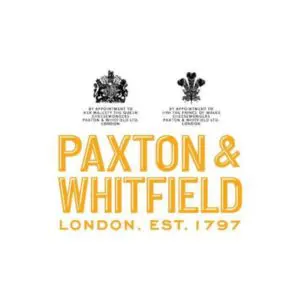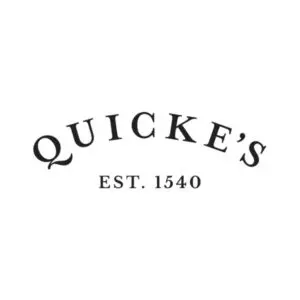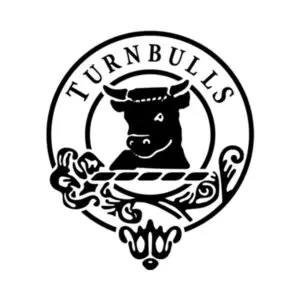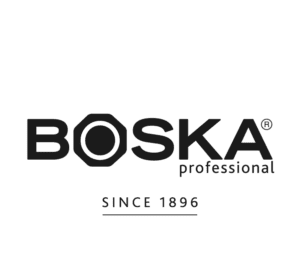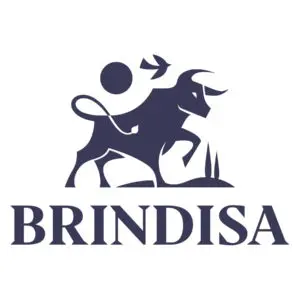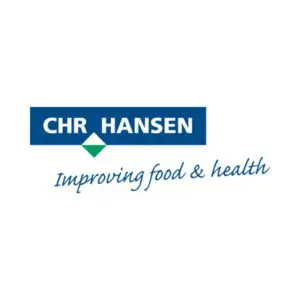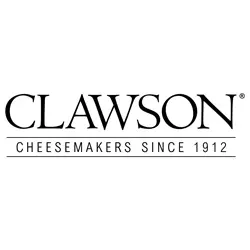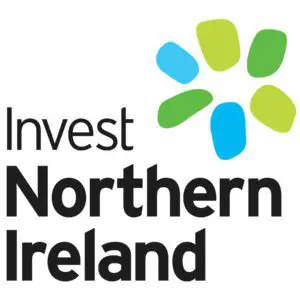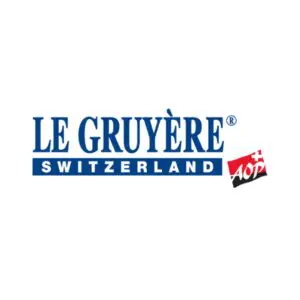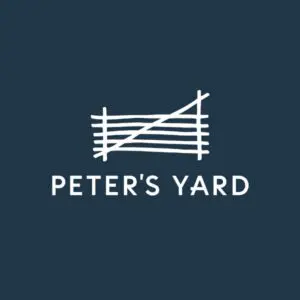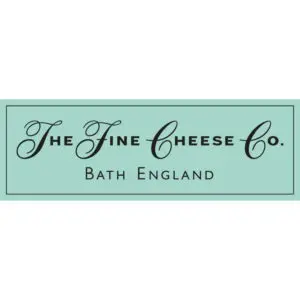In Conversation with Berkswell Cheese, Charlie Turnbull and the Academy of Cheese
Streamed live on Apr 27, 2021
GUIDE TO TASTING CHEESE
Learn about the four stages of tasting cheese and how to take tasting notes with this definitive guide to tasting cheese.
Berkswell Cheese
Good evening, it is Tuesday night it’s cheese night and we have Stephen and George Fletcher of the famous Berkswell from famous Berkshire.
Good afternoon guys right hello how are you doing how you doing how is your year going so far better than last one yeah i mean you could use any metaphor you want roller coaster or whatever you know it’s just been it’s been crazy really you know emotions from one extreme to the other um income from one extreme to the other uh yeah it’s just been crazy a lot of learning curves huge yeah yeah yeah yeah you haven’t massive i think we’ve learned more about our business in the last 12 months than we had in the last 30 years almost really okay okay that wasn’t the answer i was expecting all right let’s let’s let’s go down to before let’s go before covid before you you had the magimix got hold of your business um and uh and and date back so you’ve been making cheese since if i’ve got this right 1989 is that right yeah we started milking sheep in the january of 1989 we started making cheese in the autumn of 1989. i mean that puts you right at the top of the sheep’s milk um experience inside the uk there is very little precedent for sheep’s milk cheeses in this in this country yeah we yeah well we’ve worked harder i mean the burst felt now isn’t like isn’t the same trees we started out with it’s evolved most definitely and um it’s taken a long time uh and if we look think back now that you know the berks role that we were making say even in the early 90s is not the same cheese as it is now we’ve we’ve worked at it and we’ve we’ve had some ups and downs had some problems with it you know it went off the rails for a bit and we’ve got it back again um yeah and you never stop learning do you you know it’s as they say with cheese it’s a new vintage every day and that’s i think puts in a nutshell really yeah it is a new vintage every day and it’s uh frustrating use milk uh sheep’s milk is is is almost the most difficult in the sense that um it’s got some unusual solid ratios and you’ve got you it’s it’s it’s an animal you cannot pull out a season it needs to you know the herd lambs when it lands it’s not it’s not you can’t spread it through the year well well we we do try to do that to be fair um for the last well quite a long time 20 years we’ve been lambing in the an autumn lumbering flock so we have about reduced milk all year round but it’s they’re very challenging to manage um we’re swimming against the tide really because sheep being short day breeders you know we’re numbing them as the days are getting shorter um let me try to help them as the day is getting shorter but um but it’s challenging but [Music] a good challenge to have to manage that but a really really interesting challenge because the cheese is never the same each day it varies through the seasons as well i mean um you know to make some of our best cheese in the autumn um generally speaking if we want to enter a competition we’ll try and pick a an autumn cheese yeah um yeah well let’s let’s let’s that’s some uh let’s start with you so you you started making cheese with 35 views back in 1989 why did you do that why did we start making cheese yeah well it was never our intention to make cheese i mean when we started in as you say in 89 uh the health food thing was really getting going there wasn’t really a food culture existing then like there is now i mean there weren’t the tv chefs that there are now they certainly weren’t the cookie programs on the tv et cetera et cetera um and we were tapping in we thought we’d tap into the rapid rise in in health food interest in health food and cheek’s milk was was part of that but the demand was nowhere near um big enough and then one of the local farm shops that we were supplying milk to um the lady came to us one day and said look my goat’s milk cheese maker is um he’s packing up she’s retiring would you consider making some cheese for us and we thought well yeah we’ll give it a go um we haven’t made any cheese but teas have been made at the farm uh in the old warwickshire style many generations ago my grandfather was alive then and he could remember his mother making cheese so it goes back quite a way but we look backwards yeah but there was a there’s an upstairs southwesterly facing bedroom which we know was used as a cheese maturation room um the original lamb floorboards are very badly eroded uh which from the contact of the way coming from the cheese and then we uncovered one of the doorways into that room and lo and behold we didn’t know this but until we uncovered it we just thought it was a boarded up doorway but the door was still in that doorway and it got the worm words cheese room painted across it so um that was just an amazing amazing discovery um sadly we’ve never been able to find any recipes tucked around the floorboards i mean the floor’s been replaced now but um it was and then also and then the the farm kitchen that we use now was originally the farm dairy um you had it had stone thralls around the outside uh out around the inside of the i should say and then apparently and there’s also a bacon smoker the chimney anybody who’s seen a picture of around the whole is one big chimney stack in the middle but inside that there are six flues and one of those is a bacon smoker what a meat smoker um so uh you know they may have smoked season there we don’t we don’t know and there was no um to anybody written history for the farm sorry but you’re talking about a farm that would have done a little bit of everything aren’t you i mean uh smoked hams the whole thing yeah yeah i mean one of the rooms the rooms will be used like a daily sitting room where they tell you what not is that was the butchery um there’s a big englenook fireplace there and on the one side it’s badly worn away when they used to sharpen the knives on the on the sandstone place and it’s also a quality tile floor which slopes to the corner there used to be a hole in the corner well they’d wash the blood out at the end of the day’s work um yeah there’s a dairy there’s a brewery there’s a little extension on the end of the house built not long after the house is completed they think that was a brewery that’s also got a bread oven in it and and then there’s a malt drying pit down the side of the chimney as well a what a malt drying pit what what’s a malt drying pit a pit very dry malt [Laughter] well molten hops possibly for drying both of them for beer making okay for the brewery it’s a beautiful building isn’t it yeah it’s um and as you say it’s got this huge stack in the um uh of chimneys in the middle it’s almost like industrial stack except in a very beautiful they draw there’s so there’s six flues within that stack and the five places downstairs are all spread out if you took away the house away from the chimney yeah quite quite a structure i think you know it’s it’s massive the ground level and then so so i mean what you’re describing is it’s not a house but a it would have factory an absolute hive of activity when it was really buzzing yeah yeah so it would have been the cheese making the beer making the the butchery everything was going on in that in that um in that house and and but you were you at that time were you were simply you were simply farming not farming is simple or anything but you weren’t in production of beer of butchery of um of cheese at that time you were you were the traditional method of the night of the 20th century which was grow animals sell animals yes yeah we were milking cows that was the primary enterprise on the farm and i when i came home from college for example we were milking dairy cows um and then the milk quota situation wasn’t particularly good for us and we looked around at something different to an alternative source of income but it’s quite interesting in recent especially the last couple of years we’re starting to go back to not to the same extent we’re not going to have a brewery and things but you never say yeah yeah um but we’re going back to that sort of lots of small enterprises like we’ve got pigs on the farm now um for to feed the way to uh and we’re sort of growing more sort of traditional uh well we should go into heritage grains um and it’s yeah just sort of getting out of this sort of commodity um agriculture and putting it all together really yeah it’s not a particularly big farm and so we’re able to you know um dovetail these alternative enterprises in without too much um difficulty do you farm it’s about 360 there were there abouts we’ve just lost them to hs2 actually so it’s a bit less than that now oh someone’s driven a train through the middle of your plans then yeah yeah yeah we could have done without it but there you go for that point or is that rude on tv again sorry are you allowed to say bollocks at that point i mean yeah whatever you like yeah yeah i mean let’s not go there let’s enjoy ourselves all right okay so we’re back to our 35 sheep which you are now milking because um somebody wants you to give it a go and you partly because obviously your house and your family have got a history of you know turning your hand to it turn your hand to milking sheep um and try to ride into this this demand on the health side not realizing you are one of the very early adopters of the british cheese renaissance and and people are going to be turning your way pretty soon i mean the 90s was the time when the cheese makers really began to re-emerge in the country yeah i i think the biggest um leg up we had really was um we were getting going at the same time as the british cheese awards were performed and um juliette carver was the driving force behind that and we were lucky enough to to win some awards there and i think the the publicity side of that the whole british keys awards was fantastic because juliet was was um promoting it and she was putting the award winners into in in front of the press we were appearing in um sunday supplement yes um the broadsheet sunday supplements we were appearing in bbc english food magazine country life and all you know um on pure on the on the back of the british cheese awards we we would never have gained access to that publicity without that uh and also i think at the same time being members of the special cheesemakers association because they were also getting going um and it’s all about meeting it was giving the maker the opportunity to meet the meet the trade and yeah that that the british cheese awards at that time were with a massive help to us yeah most definitely i think i’ve gotten my notes here that you’ve won 11 gold medals at the british cheese awards i mean that’s a monstrous result yeah i think it’s something like that 11 or 12 yeah i know we were yeah we’ve been lucky i mean you know excuse me i’m not swearing never put down to luck what you can claim for yourself i found that being honest not a good plan okay well the doors are quite small in this house so i have to get mad through them as it is um but uh i think yeah it i think also we were in the right place at the right time i mean you know we were at the when specialist cheese making really was because you know the ball started to roll and we were there at the beginning i think we were very lucky to for that um and i have to give also you know a lot of credit to the guys at neil’s yard dairy fine cheese company paxton whitfield and whatnot um they’ve been tremendously supportive over the years and uh you know to be able to supply them is a real privilege and um you know it’s it’s a very it’s a real relationship we have with some of our customers you know and it brings a lot of pleasure as well i’ve often said that you go to a gathering of um small-scale artisan cheese makers everybody’s so nice yeah yeah everybody’s so nice and it’s a real sharing of ideas you have a chat you can unload off onto people and they’ll unload on to you you know and um it really is it’s a it’s a fantastic um nickel industry and i you know we really really are privileged to be part of it i would totally agree um you get all these burny farmers like yourselves knocking around starting getting really nerdish about bacterial counts and stuff like that yeah we we were saying not so long ago that um we’ve we’ve almost moved now from farmers who make cheese where it’s a subtle difference i think now we feel with cheese makers who produce their own milk and i think that’s what our that’s our focus is is that because we only use our own milk for works well and it all goes into books well and so i mean george is really taking initiative on this and we’re really analyzing quite closely how we make our milk and what we use to make that milk in terms of what we feed the sheep how we manage the sheep and our focus now is entirely i mean things like yields and whatnot are secondary it’s it’s the it’s the medium that we are producing with which we make the cheese that’s the most important our focus on the farm is the quality of the milk the quality unique to us as well there’s we do all the hard work reducing the milk if we can produce that from forage that was produced on the farm rather than sort of bought in feed and then it’s to be unique and the taste is going to be unique to this farm and um that’s what we’re in for really that’s that’s that’s so true it’s it’s as soon as you start mixing up farms milk the character disappears it evaporates yeah right i mean the you know the french have a word we don’t know like i can’t always say it’s terrar isn’t it terraria whatever you call it yes you know yeah i can’t say that master word it is but i i get frustrated with the french because they lean quickly into the ground and the weather and the minerals and they don’t put a lot of emphasis on the skill and the history and the the what’s gone into making the right recipe to make the most of that terroir you know not you know it working learning there’s a sort of social side of learning to work with your land and make the most of what it offers it’s so important and that’s what you’ve done for 32 years yeah i think they’re right is it’s not it’s more it’s more of a guided approach you um you sort of guide it from like the like they say the soil and things but it’s it’s a lot of skill in it but there’s there’s things like keeping the it’s like the microbial uh life in the milk alive and not pasteurizing and making sure everything’s right at every step of the way but you’ll you’ll you’re guiding it if you if you understand not for i’m not forcing anything yeah no i’ve heard other cheese makers talk about the fact that you are not just shepherds of sheep but you’re shepherds of bacteria it’s about making them uh you can’t control them you the best you can do is herd them in the right direction yeah yeah yeah and you and you you don’t want to with sort of antarctica wipes and things it it kills off the good bacteria as well as the bad it’s not all about being as clean as possible no so you went from 35 and i’m right saying you’ve now got 350 sheep you’re milking um now we milk about um yeah twelve months sixty fifty seven hundred we actually cut back a little bit we were sort of nine fifty and we felt that was too many um and we’ve changed our breeding a bit we’ve introducing the lacun breed into our freezing which is the french uh dairy sheep that they used to produce the milford rock for um and that’s giving us a different dimension yeah that that’s that’s going back to uh producing a little more of forage really if we can there’s still a very much dairy breed but they’ll they’ve got a bit more sort of uh meat on them and they’ll they don’t need quite as much sort of concentrates and and ex and bought in feed and they hopefully will thrive off the pastures that we’ve got here but the freezing is the traditional dairy sheet but they are incredibly high maintenance um in all sorts of ways let’s be honest sheep are stupid okay they’re deaf but they’re not stupid you know i’ve i’ve come to that i have spent the best years of my life milking sheep and i’ve come i’ve come to clearly they’re daft but they’re not they know where it’s tied their breads butted on that i can assure you all right when i was a kid we we farmed uh we have farm sheep for me and um and the only inventive thing about a sheep as far as i was concerned it found new ways to die oh yeah that’s nothing yeah yeah you know it it is it is amazing so we’ve got claire’s asking what kind of breedership you have so you introduced the lacoon um that you’re saying from a sort of friesian base is that we’re we started with friesland and we’ve also over the years introduced a little bit of pole dorset um which is now fading out again but yeah our current thinking is we’re we’re introducing some of the lacun genetics which is a french dairy breed um just to make raising a little bit more physically robust and just a little bit more versatile and alison’s asking um uh are the sheep hand-milked so i’m assuming it works exactly the same principle as a dairy cow parlor but the um things like the vacuum level are not a different it’s slightly you know it is specifically designed for shape but it works on exactly the same principle as a cow parlor so average holston freesian cow is going to produce you know a high performer will be 35 liters a day um you know yeah but so what are you getting from your sheep um on average probably about two uh it can vary quite a lot some of them sort of higher yielders giving four liters a day and then some will just be potting onto one and one and a half but yeah like it it like straight up well a few weeks after lambing uh a lot of them will sort of be up to three three and a half four uh and then it just just sort of slowly tails off um through the because of naturally the lactation getting longer than drying off but also the quality of grass dropping throughout late late summer and also the daylight lengths as well as the daylight leather shorts and the sheep naturally want to wants to dry off and so i mean i i always work on the basis that your your litre of milk from a cow is 28 to 30p or something of that order but it’s about a pound for sheep is that the sort of wholesale price what do you yeah that’s a roughly the whole i think varies depending on who’s buying it anywhere between 90p one pound 20 130 um and we we won’t give our stuff away too like we do sell a bit and they have to pay for it because it is cheese making now it’s not it’s not commodity you know it’s not we don’t consider i said earlier we don’t really count on yields um you know it’s solids that we’re after so the the yield is from secondary really well talking of solids we’ve gone 20 minutes and we’ve not really talked about your cheese so let’s get your cheese is very very famous for its shape it is the original flying saucer the story goes that you didn’t have enough um uh molds so you went down the local market and bought a bunch of calendars is that true there’s some of that yeah if you want to know what the the true story is my um my mother went to the cheese making course the first cheese we were made from sheep’s milk was made by um a neighboring farmer um sally who came and helped us get cheese making going um and then my mother decided she ought to go on a cheese court to support her so she went to oakley college and she learned the technique of hand filling colanders and brought that back and then the two of them sort of put their heads together and so and that’s how the birds are evolved but um yeah we we’ve stuck with the colanders because they were at the time they were quite easy to find and um as we could made more cheese you just went down to the local hardware shop and bought more colanders but then maybe when we needed to replace them um some years afterwards calendars were becoming a kitchen ornament and you could get very fancy enameled metal ones but you couldn’t get a bog standard white plastic calendar for love the money i got on the internet and i ended up on the dollar shop online and i thought yep that’s just what we want so i mean this is amazing we contacted the dollar shop online and we said who makes these cleaners for you they say oh it’s a firm in illinois um called arrow arrow moldings i think so i contacted them and we imported a couple of thousand of them and uh yeah it was quite quite an experience really you know we never you know we were the sole we went through the whole process of organizing a career and you know transport and shipping and everything and uh yeah so if you if we’ve got a few if you ever want a spare calendar you can give us a shout out how how far through your thousand calendars are we’ve got quite a long way through them because they don’t know they have a limited life they they they get quite a stick and um they split or like you know crack or whatever and so we took them out and get another one but they clean well and um so run through how you make it so how you know it’s a rennet set obviously how long you um is it high school low schooled what’s the what what is your technique certain things are sacred but uh yeah it’s what i say to people it’s a pretty basic a routine make in the sense of our our temperatures are nothing um that different um at times we we use a combination of of um titanical acidity and time lapse and touchy feely as well you know it is 100 100 percent handmade there is not one piece of machinery involved not one button is pressed to activate anything and any of the bats it’s all totally handmade um it’s hand cut with with parts do you use a style recipe where you get the curd out on the table and and mill it like that so or do you leave it under the way and uh you do so it’s a european it’s it’s what we are the cameraman i mean call it a acidify in mold non-acidifying bat yeah yeah when we’re ready to mold just just open the tap let the weight uh start to drain out and then we’re molding as it’s draining out and by the end it’s yeah the way it’s gone yeah the kurds left in the way the the kurdish at moulding the kurdish taken from the vat intervention yeah yeah it’s just a very basic there’s nothing and you’re through wash how are you salting it dry salt dry salt on the outside yeah yeah yeah yeah so that is kind of an interesting sort of anglicization of a french recipe really isn’t it yeah it is i suppose it’s also not inspired it’s very much trying to know yeah when you started it’s not like they didn’t take a recipe from france uh until based on that really it was really sort of um we’ve got this milk yeah i remember sally made her the very first cheese she got some college notes out and one and first recipe she actually read through was a care philly recipe doesn’t bear any resemblance to a carefully but that was the spark that that’s how she got going but yeah i i just said we as i said earlier in the conversation and i think back to the books in the early 90s it doesn’t really resemble the birth we make now it has evolved we’ve tried brining we’ve tried this we’ve tried that we’ve tried double dipping back into the way um and we just stay with what we’re doing you know and i think it’s it’s more it’s more focusing on the attention to detail it it it is so easy to um get it wrong if you’re not on the ball constantly all the time you know it’s quite unforgiving in that sense um medical room for maneuver we were saying earlier you can when we’re tasting the cheeses even coconuts online but if there’s a batch we’re not quite happy with we should look for the notes and julia she’s like oh yeah we were really stressed that day or or we were a bit short and um it’s um it’s like it’s a 100 reflection of that day yeah yeah in all these different variations you know um because again and it is i keep going on about it and it sounds bit but it is because it is literally hand made you know from everything from the timing of of whether when the start is out there when the reddits added everything’s added is nothing’s automated it’s all on the decision of the duck i mean we’ve got three ladies in the cheese room they can all make and so you know they they share the making around um julia’s in in charge very much so and uh yeah it it is attention to detail and i think it’s also having green fingers you know i don’t think i don’t think anybody can be a cheese maker i think it’s a real skill that um you can either develop that skill you can’t we we are hugely lucky we’ve got the freaking dairy in there they’re just yeah they’re absolute legends and you need people like that if it when it’s so handmade it’s you need that detail and continuity that love that kind of care yeah exactly yeah it is and what about the next step because one of the you know if you look at sheep’s milk cheeses across europe and all that kind of thing um it is a cheese that changes radically from the moment you’ve made it to what if you keep it for a year or however long you keep it you know it’s a cheese milk starts off relatively white relatively soft and it and it develops little holes it gets older the color changes the profile the flavor profile what’s your favorite age for your cheese i would say that the age and also the time of year my my favorite cheeses i would say probably are made around the end of the mid-winter um i think some of that is because the milk is a very consistent product then the sheep are indoors their environment is the same every day they’re rushing their diets the same every day um i think we get a much more consistent period in our in our production um and five to six months i would say i mean we taste um we do a taste we do what julie does a four-week tasting um and that is really just to try and determine texture uh four weeks there’s very little flavor if there is flavor development at four weeks and you know it’s going to blow your socks off at six months old um but we’re looking for texture really because we do if we have a problem it’s generally with the texture become a little bit dry so we can identify quite an early stage um anything we think might just start to dry a bit sooner and we can manage that accordingly but um yeah once it goes above six probably eight months it starts to change and it becomes very much like a parmesan and we’ve got a lot of customers who really enjoy it at that age and um great and shaved with it you know use it in cooking rather than a cheeseboard cheese and then we had some um we talked to over a year old uh we gave it a different name and um that was a that was a really nice cheese um quite dry but and different to burkeswell but still a very clean um yeah very clean grated yeah great it was fantastic yeah that’s so sort of um in the manchego style that viejo as they say um it becomes almost too dense a flavor to eat in a cheeseboard style it becomes a um almost like a garnish for tapas and stuff like that yeah yeah it’s too dry it doesn’t lend itself to yeah and it’s a bit chewy as well you know it doesn’t lend itself to cheeseburger cheese once it gets very old okay we’ve got a techie question coming from jonathan tash why do you choose to coat the cheese rather than cloth wrap or allow a natural grind right okay um we started using uh what’s generally known as plastic quite early on when we were having trouble with the cheese’s cracking when they were very young they they spent about five days in the make room and then they come out of the make room and we were finding i guess it was lack of experience or whatever we were finding they were cracking quite quite seriously and um we didn’t know what to do and um we have we’re quite close to um powers of elsewhere the fact that flowers cheese makers david was incredibly helpful to us in our early days he was literally walking inside the pdf cheese making and he suggested that we use a product called um plastic coat which just prevents thin film over it and it just helps the cheese um it slows the drying process of the rye net quite a lot um it’s relatively easy to to apply uh it’s very it doesn’t prevent the rhines forming um we have then tried um not doing it with mixed with mixed success um but quite a few cheeses do use it well we were talking jones a couple of weeks ago i was going to mention that the previous gentleman um uses it yeah um i’ve not really got an opinion on it one way or another we we it’s a good insurance for us um our eho quite likes it because it it’s you know it’s protecting the the product yeah the purists will say obviously you know it’s awful stuff you shouldn’t there are no purists on on this channel um there is only good cheese um yeah i i really i i think it’s the cheese maker’s license to do what the hell they like frankly well yeah it works for us and you know and if it ain’t broke don’t fix it as far as i can yeah yeah amazing um diverse rock lines yeah on the cheese as it matures it’s been painted yeah we’ve got some great molds for me on yeah you do and it’s got some of those nice distinctive rusty colors as well yeah which i always rather like um uh i i do i do agree with you and i’m sure jonathan’s the same um it’s it’s you have so many challenges as a cheese maker um you’ve got to pick your battles in some respects um and uh and and you’ve got to be able to do it in a way that’s economically competitive and delivers the flavor profile you want and you know for some people that means pasteurization for other people that means um you know using different milks so i strongly think that the cheese maker finds their way and you clearly have i mean you’ve got you’ve got trophies like very few others which went that way they are yes cheese makers and farmers are making cheese it’s very unique to where they are what milk they that they can get and it yeah it’s never really look at someone’s why are you doing that if that’s what they need to do to provide to produce the best best cheese they can that’s what they do and one of the questions being asked is um would you would you make blue cheese we did touch this before we before we started talking um on the show you just make the one cheese you’ve considered other things but at the end of the day you come back to wig um two to this one it works well every single time it’s a credit to like my dad and cheese because that was when they started um to not need to uh try different cheese all of it was going into burkesville because it was popular and people liked it and and we they were sort of perfecting the berks well and you sort of think if if you can perfect burke’s like what why of a jesus yeah we did we did double with a few soft cheeses but we found we were taking high off the ball a little bit um you mentioned blue um does get some blue in it now and again um some people don’t mind it i mean uh some people call it lightning strikes which i quite like phrase we do get complaints from wholesalers which sometimes it’s a bit um frustrating when it is a little speck of blue in the corner um but if it happens you know and sometimes you’ll get a bit of a run of it and um we pretty over the years we’ve every time it happens we analyze why we think it’s happened and we can probably work out what has gone wrong i mean going right back many years ago i don’t remember call when blue tongue virus was um around we vaccinated all our use against blue tongue because that was the we were almost being ordered to by defra really uh and the cheese was rubbish for the last two weeks after the vaccination for blue tongue um so but uh yeah all sorts of things can affect it you know very careful very very careful in the winter with the solitary feed it’s good quality um very good it has to be very good quality i mean the shaped not because of the sea beating much them and they’ll pick through but um you just don’t want any um uh you don’t have any butyric um not all you know no you’re gonna get blowing and all sorts of weird stuff absolutely yeah yeah yeah yeah um we have actually been talking for 35 minutes now which is six minutes which is which is six minutes over my rules so obviously this conversation has value um i hope people have very much enjoyed hearing what you’re talking about you’re you you’ve told the story of 32 years of a lot of hard work a lot of improvements um a lot of focus um and that’s made um box world what it is today i mean you guys have done a great job and deserve a lot of credit thank you very much congratulations well we will continue we haven’t done it we haven’t we have a healthy overdraft so we’ve got to keep going the farmer’s curse he can never give up he can never give up yeah okay charlie thank you all right thank you very much and thank you all the people who’ve been watching um and if there’s one takeaway here is buy more burke’s well is that the fair company yeah yes yeah yeah yeah that goes as a given thank you very much stephen george thank you cheers
